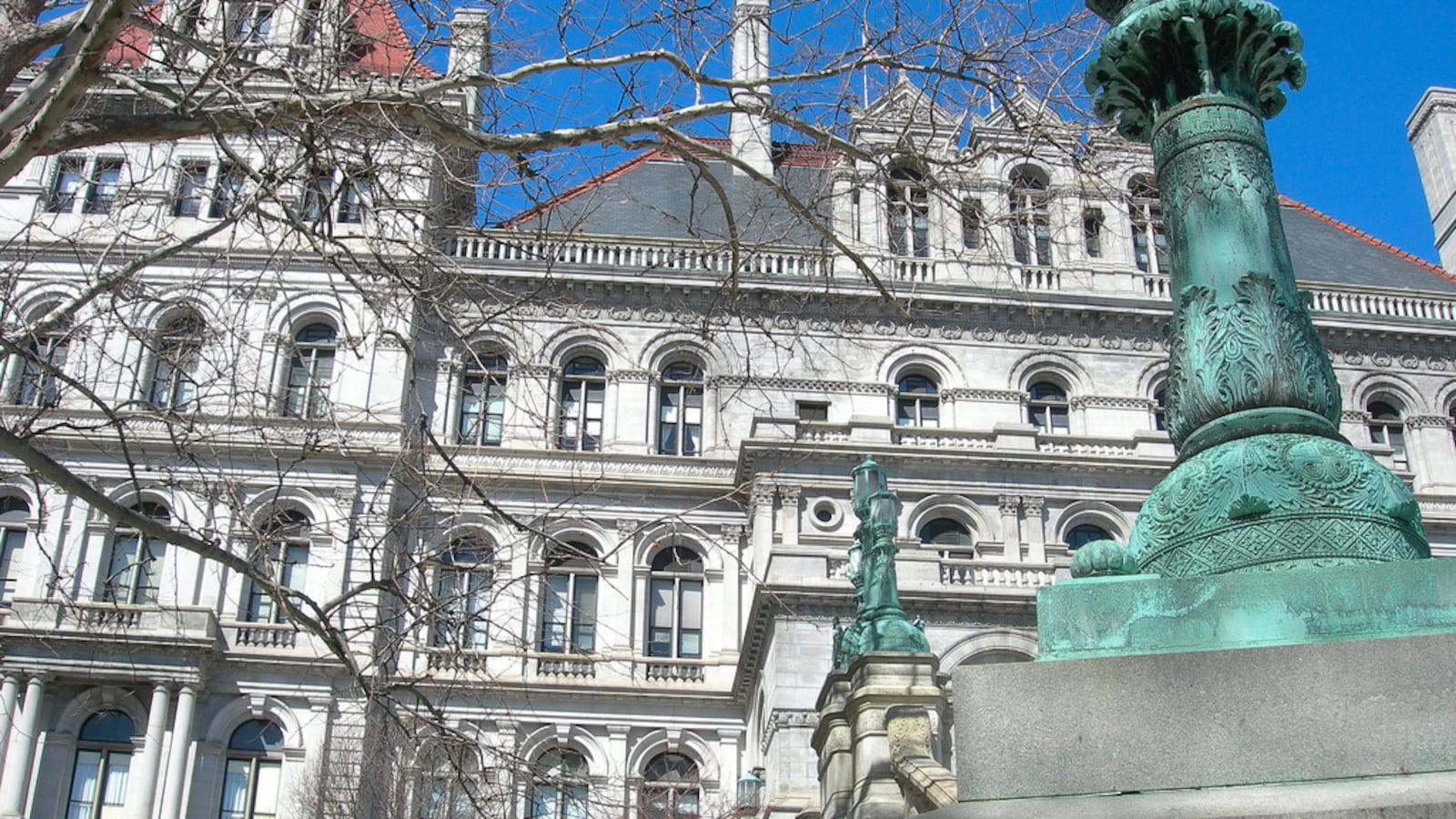With one day left in the legislative session, New York lawmakers are entering their final hours to solve a number of education-related issues — including who will control the nation’s largest school system.
Mayoral control remains the most significant issue left on the table. Without legislative action, Mayor Bill de Blasio will lose control of city schools at the end this month. But the Senate and Assembly remain locked in a battle over how to resolve the issue.
Another sleeper policy, and potential game-changer for school districts, is an effort to change rules that tie education funding to teacher evaluation plans. The change would give districts more time to negotiate the details of the new evaluations required by an unpopular 2015 law.
Both issues have emerged at the end of a relatively quiet session for education policy. But they could be sticking points as lawmakers move closer to a so-called “big ugly” agreement before heading home for the summer.
Here’s what you need to know about the education issues left on the table early Wednesday evening:
Mayoral control
On Thursday, lawmakers were no closer to a deal on mayoral control than they have been for weeks. Senate Majority Leader John Flanagan said they were still discussing the issue on Thursday afternoon.
“We send over 9 billion dollars a year to the city of New York. They need the money. We want to know how it’s being spent,” Flanagan told reporters. “We want to know what kind of progress is being made and I don’t think that’s unreasonable.”
The Senate supports a one-year extension of the policy or a series of concessions that Assembly Speaker Carl Heastie quickly called a “non-starter.” The Assembly, Gov. Andrew Cuomo, and Mayor Bill de Blasio all support a three-year extension.
The argument over mayoral control is rooted in a history of animosity between de Blasio and Senate Republicans. The mayor tried to upset Republicans’ majority control in 2014 — and lawmakers will not let him forget it.
That squabble resulted in a one-year extension of mayoral control last year, paving the way for a months-long parade of hearings and politicking between the mayor and state legislators.
Flanagan and other Senate leaders argue that de Blasio has not improved schools enough to warrant a long-term extension of control. But many in the city say an annual battle in Albany doesn’t help.
“It is increasingly frustrating to see the NY State Assembly and the NY State Senate playing games while the education system of NYC is held hostage to political fights,” read a letter emailed Tuesday to lawmakers by the Education Council Consortium, a group of parents and community members who serve on the city’s Community Education Councils.
Teacher evaluations
Last year’s legislative session was dominated by a contentious teacher evaluation law that passed in a late-night budget deal.
A lot has happened since then.
In response to widespread backlash from teachers and parents, policymakers have spent the legislative off-season undoing the most contentious aspects of the law. They banned the use of grades 3-8 math and English exams in evaluations, and will give most teachers a pass on being judged by an independent evaluator.
Though policymakers have largely negated the law, districts are still on the hook to negotiate the details of a new system or face a loss of state funding.
In a last-ditch effort to change that, State Senator Todd Kaminsky circulated a petition around the capital last week.
“Linking essential school funding with the implementation of a teacher evaluation system which has been universally discredited and rushed makes little sense,” the petition reads.
But lawmakers say there are few signs from either the governor or Senate leaders that a teacher evaluation bill will pass.
“I hear nothing,” Kaminsky said. “[The petition] was met silently and coldly.”

